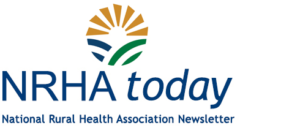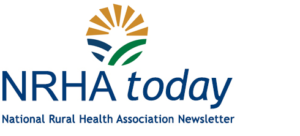March 14, 2025

Webinar Series: Building Rural Health Resilience through cybersecurity and AI: The Cyberlandscape, Starts March 19
Microsoft is hosting a webinar series on building rural health resilience through cybersecurity and AI starting at noon CDT, March 19. This webinar series was designed to empower rural healthcare organizations with the knowledge and tools needed to enhance cybersecurity and AI capabilities. Hosted by industry experts, each session will provide valuable insights into how technology can be leveraged to protect and innovate within rural health settings.
Webinar Series Schedule:
- Rural health resilience through cybersecurity and AI: the cyberlandscape
Gain practical insights and strategies to manage user identities, secure access, and protect your hospital’s data through identity and access management (IAM)using Microsoft Entra ID. Learn how to implement multifactor authentication, conditional access policies, and continuous monitoring to ensure that only authorized personnel have access to critical systems and information.
Cost: Free
When: Wednesday, March 19, 12:00 p.m. – 12:40 p.m. CT
Click Here to Register
- Understanding the security features of Microsoft Business Premium and Microsoft 365 ES and Microsoft 365 E5
Join this webinar to discover how Microsoft Business Premium, Microsoft 365 E3, and Microsoft 365 E5 can support your hospital’s cybersecurity through advanced security features, built-in compliance tools, and seamless integration capabilities to safeguard your organization against cyberattacks.
Cost: Free
When: Wednesday, April 9, 12:00 p.m. – 12:40 p.m.
Click Here to Register
- Best practices in identity and access management using Microsoft Entra ID
Gain practical insights and strategies to manage user identities secure access, and protect your organization’s data through Identity and Access Management (IAM) using Microsoft Entra ID.
Cost: Free
When: Wednesday, May 14, 12:00 p.m. – 12:40 p.m. CT
Click Here to Register
- Next level innovation for rural health: A CIO’s real-world example
Tune in to hear a rural chief information officer (CIO) share firsthand experiences in driving innovation with limited resources to help their organization achieve next-level innovation and improve patient outcomes.
Cost: Free
When: Wednesday, June 11, 12:00 p.m. – 12:40 p.m. CT
Click Here to Register
- Lessons from a CAH cyberattack: Best practices for cybersecurity
Gain insights from a CIO’s real-life experience responding to a cyberattack at a Critical Access Hospital (CAH). This session will bring valuable lessons learned, best practices in cybersecurity incident response, and practical steps to improve your organization’s cyber resiliency.
Cost: Free
When: Wednesday, July 9, 12:00 p.m. – 12:40 p.m. CT
Click Here to Register
- Best practices in endpoint management using Microsoft Intune
Join this webinar to learn how to plan, deploy, and operationalize device management, enforce security policies, and ensure compliance at your hospital with Endpoint Management using Microsoft Intune. By the end of this session, you’ll be equipped with the knowledge and tools needed to create a robust and secure device management strategy tailored to the unique needs of your hospital.
Cost: Free
When: Wednesday, August 13, 12:00 p.m. – 12:40 p.m. CT
Click Here to Register
- Supporting rural health through AI innovation
Boost your hospital’s ability to adopt and use AI innovation to improve care delivery and operations. Hear from a Microsoft expert about the free AI training designed to equip both frontline and IT workers with the skills needed to fully harness the power of AI in their roles.
Cost: Free
When: Wednesday, September 10, 12:00 p.m. – 12:40 p.m.
Click Here to Register
- Security transformation is cloud transformation
Learn about the benefits of moving to cloud-based security solutions and how to implement a successful cloud transformation strategy to provide robust protection against cyberthreats.
Cost: Free
When: Wednesday, October 8, 12:00 – 12:40 p.m. CT
Click Here to Register







